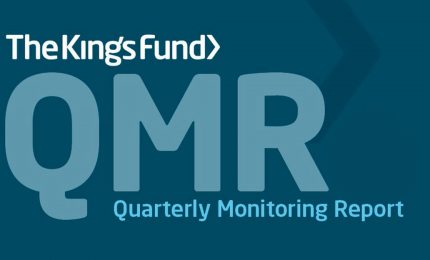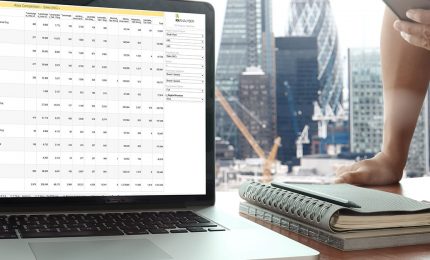Structural change across the NHS has had a dramatic impact on the sales process for pharmaceutical companies, but advanced data analytics can deliver the strategic insight necessary to gain the competitive edge, says Inspiremed’s Andrew Norman.
Much has been made of the wealth of opportunities presented by big data. But ask any business what their biggest headache is when it comes to using it, and they will point to the difficulty in getting what they need from the vast volumes of data available. Even firms with business intelligence teams that perform the complex task of altering, formatting and visualising data and that it still takes a considerable amount of time, effort and resource to deliver the level of insight decision-makers and sales teams need.
What’s needed is an inspirational new approach enabling users to see through the data and implement strategies to help their brand or product reach its true potential. It means providing the right people with the right data at the right time via any device, and create a way to integrate the wealth of disparate data sources available into an insightful source of BI.
Large datasets have been employed in pharma for many years and there are several suppliers working throughout the healthcare delivery chain aggregating information as a source of BI to gather insights on the pharmaceutical marketplace and the competition. However, the more granular the data needed, the more expensive it becomes. Furthermore, data at prescriber level has traditionally been derived from wholesale and distribution channels, rather than actual NHS data.
Open data changes the game
All this changed in late 2012 with the introduction of the government’s open data initiative. e release of official NHS prescribing data has guaranteed accuracy to GP practice level, but the dataset is vast and delivered in basic ‘raw’ format. It needs expert enhancement and manipulation before it is suitable for analysis, making it impenetrable for the average user.
At Inspiremed, we specialise in handling unwieldy datasets, and have transformed NHS prescribing data into a rich source of primary care information. On top of this, we’ve developed a next-generation toolkit, called RX Analyser, which enables us to build bespoke analytical dashboards, interrogate the enhanced data, and deliver rapid- re visualisations. In transforming the way prescription data sets are used and viewed, our solutions provide informed insights for those involved in the sales and marketing decision-making process.
Using Inspiremed’s Rx Analyser, companies can tap into the true power that the wide range of healthcare data now available offers. What’s more, anyone can use the system to drill down to the information required within seconds. It enables them to segment targets, set pricing strategies, and demonstrate cost savings that can be achieved by prescribing different products using ‘what-if’ modelling based on accurate prescribing data at a GP practice or pharmacy level.
For pharma companies, Rx Analyser meets the needs of key business functions across the organisation:
- Product managers, BI and marketing can shape their market, plan their strategy and grow their brands via detailed market insights
- Market access and account managers are able to identify key accounts and customers, develop and implement their strategy, and monitor its effectiveness
- Sales representatives are able to use regional and practice-level analysis to plan and implement their sales strategy, as well as perform live budgeting demos to prospects.
Demand for visibility
If key account managers are to engage effectively with the medicines management teams and prescribing personnel of clinical commissioning groups, it is essential they have the right tools. At the same time, BI teams within pharma need to recognise there are data analytics tools available to them that can enhance their role.
Given the pressures industry is facing, Inspiremed’s powerful data visualisation package enables users to be far more strategic. It represents a fundamental shift in how to approach big data, opens up a wealth of opportunities as more types of datasets become available, and recognises that although there is masses of data available, it is what you do with it that counts.

















